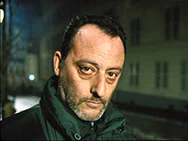Porco Rosso
Brief Synopsis
Cast & Crew
Hayao Miyazaki
Michael Keaton
Susan Eagan
David Ogden Stiers
Kimberly Williams-paisley
Jean Reno
Film Details
Technical Specs
Synopsis
A fantasy flick about a man named Marco--former fascist and founder of the Italian Aviators Club--who was transformed into a giant pig known as Porco Rosso.
Director

Hayao Miyazaki
Cast

Michael Keaton
Susan Eagan
David Ogden Stiers

Kimberly Williams-paisley

Jean Reno
Crew
Naoko Asari
Cindy Davis Hewitt
Rick Dempsey
Toshiba Emi
Tomoji Hasizume
Donald Hewitt
Joe Hisaishi
Katsu Hisamura
Hayao Miyazaki
Atsushi Okui
Atsushi Okui
Yoshi Sasaki
Takeshi Seyama
Makoto Sumiya
Toshio Suzuki
Tokiko Tamai
Kaoru Tanifuji
Yasuyoshi Tokuma
Matthaios Tsimitakis
Film Details
Technical Specs
Articles
Porco Rosso
The most internationally acclaimed living name in feature-length animation, director Hayao Miyazaki had already developed a series of ambitious projects when he decided to combine his love of all things Italian and porcine for 1992's Porco Rosso (which translates as "Crimson Pig," though the more lyrical Italian name was retained for most territories). While most of Miyazaki's films combine his own personal predilections with commercially viable fantastic elements, even the director felt this particular project might be too personal and even self-indulgent (according to The Art of Porco Rosso); the predominant themes of disillusionment, middle-age longing, and nostalgia would be challenging even for Japanese audiences, much less other countries where animation is often regarded as a children-friendly art form.
Born in 1941, Miyazaki spent his childhood in World War II and its immediate aftermath, a likely influence on the film's ambivalent attitude about male-driven conflict and the use of technology both for spiritual uplift and destruction. His cel animation company, Studio Ghibli (whose name derives from aviation and gets an in-joke nod in this particular film), still relies primarily on traditional hand-drawn animation with only minor, time-saving reliance on computer assistance when necessary. While most Western viewers have been forced by studios to accept completely computerized animation as the cinematic standard, Japanese animation (Miyazaki rejects the term "anime") continues to adhere to its original roots, drawn by human hands with characters and situations impossible to recreate via machine. Still, one can find parallels between Porco Rosso's saddened view of humanity and Miyazaki's own feelings about his profession; as he stated in a 1988 publication, "About Japanese Animation" (written for a film course), "Our profession has been corrupted. The ambivalence in myself is also getting worse...We can't see anything if we stay in Tokyo. We can't find anything if we look for a hint in the TV or movie industry. Unless we make an effort to get a viewpoint to see far away, we will end up in a small closed world." Despite repeated threats of retirement, Miyazaki continues his busy work as director, writer, and artist.
Originally begun as a short film running under an hour for Japan Airlines and inspired by his own manga, Zasso Note, Hikotei Jidai, the narrative expanded far beyond its original concept into the bittersweet ode to 1920s European pilot life in its current incarnation. Fortunately Miyazaki's vision prevailed (and earned his highest box office gross in its native country to date), allowing him to continue expanding the limits of feature-length animation with his later masterpieces like Princess Mononoke (1997), Spirited Away (2001) and Howl's Moving Castle (2004). Despite its success, Porco Rosso took over a decade to widely reach American audiences, with Disney commissioning a new dub track (featuring Michael Keaton, Cary Elwes, Brad Garrett, and Susan Egan) rather than using an unsatisfying previous English dub. However, regardless of the language in which one sees the film, its delightfully eccentric world remains fascinating and beguiling.
PORCO ROSSO (JAPANESE VERSION)
Producer: Ned Lott, Yoshio Sasaki, Sokai Tokuma, Yasuyoshi Tokuma, Matsuo Toshimitsu
Director: Hayao Miyazaki
Screenplay: Hayao Miyazaki
Cinematography: Atsushi Okui
Film Editing: Hayao Miyazaki
Art Direction: Yoshitsu Hisamura
Music: Joe Hisaishi, Tokiko Kato
Cast: Shuichiro Moriyama (Kurenai no Buta), Tokiko Kato (Jina-sama), Sanshi Katsura (Pikkoro-oyaji), Tsunehiko Kamijo (Manmayuto no shacho), Akemi Okamura (Fio Pikkoro).
C-94m. Letterboxed.
PORCO ROSSO (ENGLISH VERSION)
Producer: Rick Dempsey
Director: Hayao Miyazaki
Screenplay: Hayao Miyazaki, Cindy Davis Hewitt, Donald H. Hewitt
Cinematography: Mark Henley
Film Editing: Hayao Miyazaki
Art Direction: Yoshitsu Hisamura
Music: Joe Hisaishi, Tokiko Kato
Cast: Susan Egan (Gina), Cary Elwes (Curtis), Brad Garrett (Mamma Aiuto Boss), Michael Keaton (Porco Rosso), Kimberly Williams (Fio).
C-94m. Letterboxed.
by Nathaniel Thompson

Porco Rosso
Quotes
Trivia
Miscellaneous Notes
Released in United States Winter January 1, 1992
Released in United States on Video February 22, 2005
Released in United States 1993
Released in United States 2005
Awarded top honors at 1993 edition of the annual Annecy animation festival.
Shown at Santa Barbara International Film Festival January 28-February 6, 2005.
French version available
Released in United States Winter January 1, 1992
Released in United States on Video February 22, 2005
Released in United States 1993 (Awarded top honors at 1993 edition of the annual Annecy animation festival.)
Released in United States 2005 (Shown at Santa Barbara International Film Festival January 28-February 6, 2005.)













